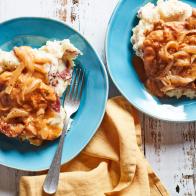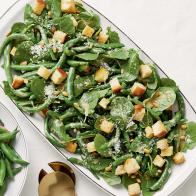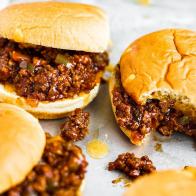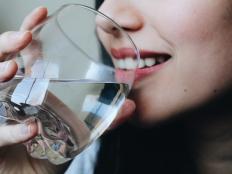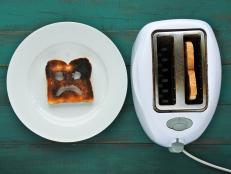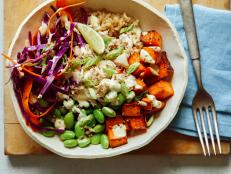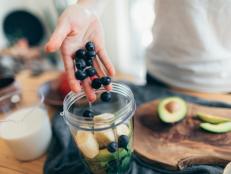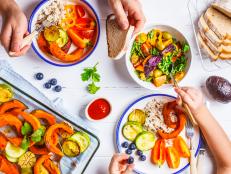How Much Water Do You Really Need?
How much water should you drink a day -- 8-10 glasses, right? Well, as it turns out, there’s no scientific research to back up this number. Learn the best way to figure out how much water you should be drinking.
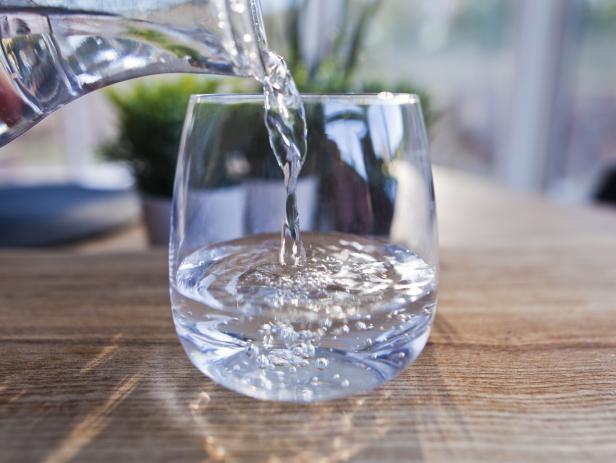
Capelle.r/Getty Images
You should be drinking 8 to 10 glasses of water a day, right? Well, as it turns out, there’s no scientific research to back up this number. Learn how to figure out how much water you should be getting and other ways to stay hydrated this summer.
What Does Water Do for Your Body?
Your body relies on water for a lot more than quenching thirst. Water makes up about 60% of your body weight, and it helps control our body temperature, flush toxins and retain moisture. Because we lose fluid through breathing, sweating and bathroom breaks, we need to constantly replenish to keep body fluids in balance.
The truth is, fluid replacement doesn’t have to come just come from straight-up water -- all fluids and many foods contribute to hydration. That’s right -- everything you drink and foods like soups, fruits and vegetables count. Foods actually account for about 20% of our average fluid intake, while beverages make up the other 80%.
Now that's not carte blanche to replace all the water you’ve been drinking with sugar-y soda or coffee, but it does mean that everything counts. Recommendations for how much “water” to drink should actually be recommendations for how much total fluid you need in a day. Of course, water is still the best choice because it’s calorie-free and gets absorbed quickly. Americans get more than 20% of their daily calories from beverages, and it's easy to overdo it, which can mean extra poundage.
Fluids help our bodies function properly and inadequate intake can impact sleep, mood, and body function. However, in an attempt to hydrate some people go overboard drinking more water than what their body actually needs. Overhydration can be disruptive and uncomfortable and in extreme cases, can cause seizures, coma and even death. For more info on drinking too much water, check out our story, Is There Such a Thing as Drinking Too Much Water?.
But Caffeinated Drinks Dehydrate You, Right?
That's also a myth, too. Research supports that caffeine-containing drinks do not have a negative affect on your overall hydration levels.
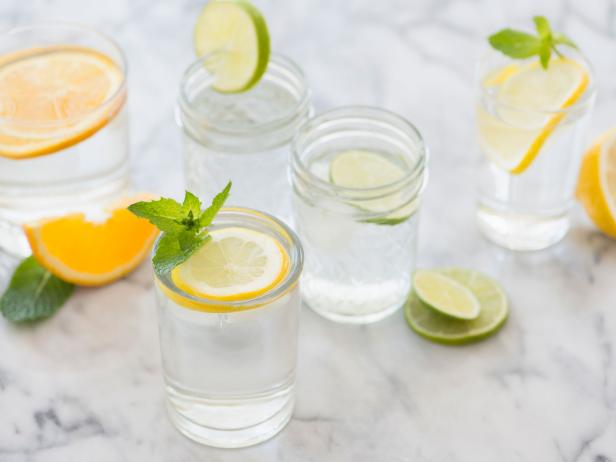
Jamie Grill/Getty
How Much Water Should I Drink In a Day?
The Institute of Medicine recommends about 11 cups of fluids a day for women and 15 cups for men on average. If you exercise regularly or spend time outside in the heat, you need more. Women that are pregnant or breastfeeding also need more. Fluid needs are different for everyone and factors like climate, age, activity level and medical history should be considered.
If you’re looking for formulas or calculations, we're here to tell you that your body is one of the best predictors of your unique fluid needs. A simple way to check if you’re getting enough water is to pay attention to how much you’re urinating and the color of your urine. If you find yourself constantly going to the bathroom and your urine is coming out transparent, that’s a sign that you’re probably drinking too much water and need to cut back. A light to pale yellow typically indicates good hydration and dark yellow to brown tones indicate dehydration. Keep in mind that strongly pigmented foods like beets and carrots can impact urine color, along with B-vitamins and certain medications.
Also pay attention to your sweat rate. If you sweat more because of exercise or a hot day in the sun, you need more to drink in order to replenish.
Another way to tell whether or not it’s time to hydrate is by drinking up when you’re thirsty. This may seem obvious, but you’d be surprised how many people ignore their body’s intuitive signals. Aside from thirst, other signs of dehydration include dizziness, fatigue, headaches, constipation, dryness in the mouth and urinating less than three times per day.
Tap Water vs. Bottled Water
Nutritionally, there’s virtually no difference between tap and bottled water -- unless you live in an area where the water has been deemed undrinkable, of course. In fact, tap water may contain more minerals than the bottled stuff. Bottled water is often a convenient option, but it requires a lot more energy to produce all those plastic containers -- plus, it can get pricey. According to Planet Green, one liter of bottled water requires 2,000 times more energy to produce than one liter of tap water! Reusable drinking bottles are the eco-friendly way to go.
If plastic bottles are the only option, re-fill them with tap water a few times to get some extra use out of them. Check out our tips for using safe plastic containers and drinking bottles.
How Can I Make Sure I Drink Enough Water?
If you’re struggling to meet your fluid needs, here are some helpful tips. Also check out our story, 9 Products to Help You Drink More Water.
Distribute Fluid Intake Throughout the Day
Aim to consistently hydrate during the day instead of drinking large amounts of water during short time intervals. Enjoy having a couple glasses of water first thing in the morning and then time things out based on meal times. If you work out regularly, make sure you’re properly hydrated before, during and after exercise.
Carry a Large Water Bottle
It can be annoying to have to refill water bottles every hour. Invest in a bottle that can hold you down for a few hours and is easy to carry when you’re out and about.
Add Flavor to Your Water
If plain water gets boring, add herbs, citrus and tea to your water for added color and flavor!
Blend Fruits
Smoothies are a fun way to hydrate, especially during the warmer months. Make sure to add foods like yogurt, nuts, milk and seeds for added nutrition. Remember, fruits and veggies have high water content. And if you're looking for other ways to hydrate that aren't plain water, check out our story 5 Fun Ways to Hydrate that Aren't Plain Water.
Keep Water Around the House
Having visual reminders can be helpful for remembering about hydration. Keep small bottles of water in your bedroom, living room, office and kitchen and sip on them throughout the day as you move around the house doing daily tasks.
Related Links:

